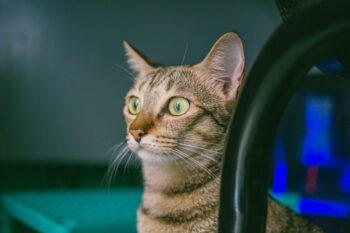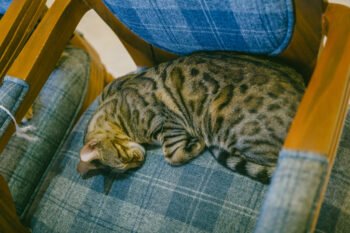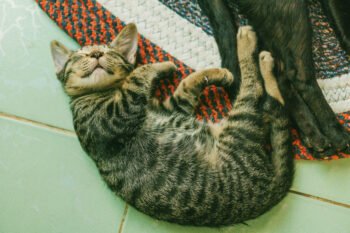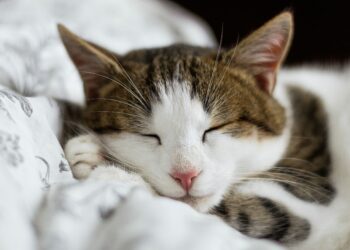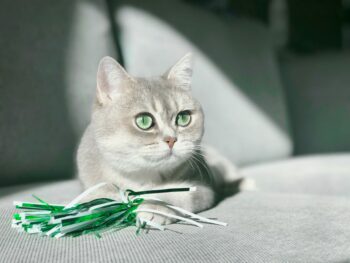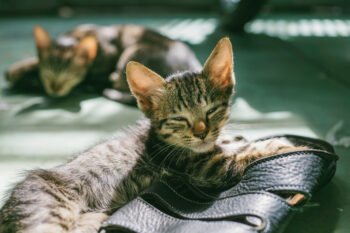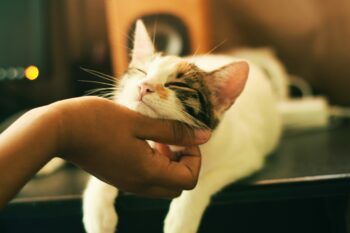Feline cognitive disorder, a kind of “kitty Alzheimer’s,” has recently been recognized in cats. We explain how to recognize the symptoms, some treatments that help, and why extra doses of understanding and TLC is important.
by Wendy Christensen
It might start with a howl in the night. Dominique just turned Sweet Sixteen, but she’s no teenager; in “cat years,” she’s pushing 80. Tolkien wrote, “Not all who wander are lost,” but Dominique wanders aimlessly, wailing in confusion–lost in her own home, lost in her own world. She’s missing the litter box, too.
What’s wrong? It could be feline cognitive disorder–“kitty Alzheimer’s.” As cats live longer, they’re encountering many of the disorders of age that plague elderly humans: cancer, diabetes, and cognitive decline. Post-mortem examinations of the brains of cats that evidenced cognitive disorder show the same kinds of tangled fibers–called “beta amyloid plaques”–seen in the brains of human Alzheimer’s victims.
Some cats age “better” than others, and never experience more than a gentle slowdown into dignified seniorhood. Others starting as early as 10, but usually well into their teens, show increasing signs of cognitive disorder, including:
- Lack of awareness of their surroundings
- Wandering, disorientation in familiar environments
- Extreme lethargy, lack of energy
- Litter box mishaps
- Sleeping much more than usual
- Radical changes in sleep/wake cycles
- Occasional or frequent inability to recognize familiar people
- Forgetting to eat or drink
- Staring at walls or into space for long periods
- Howling and wailing, especially upon awakening suddenly
Your senior cat should see her veterinarian at least twice a year anyway, but these signs, especially in combination, merit a special visit. Your veterinarian can suggest dietary changes and prescribe medications than can help slow down (though probably not stop or reverse) cognitive decline. Some cats have experienced dramatic improvement with the drug Anipryl.
Meanwhile, provide a stable, predictable, stress-free environment, gentle exercise and grooming assistance. A tidy coat and trim claws will help your senior feel more like her old self. Ease her life and salve her dignity with several litter boxes in convenient locations. The soft burbling of a “cat fountain” near her food bowl can remind her to drink and eat more often. And remember: Old friends are best, even if they don’t always recognize you.

